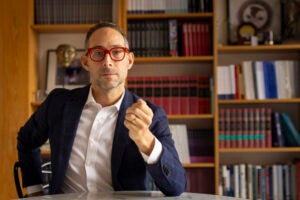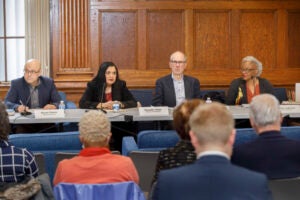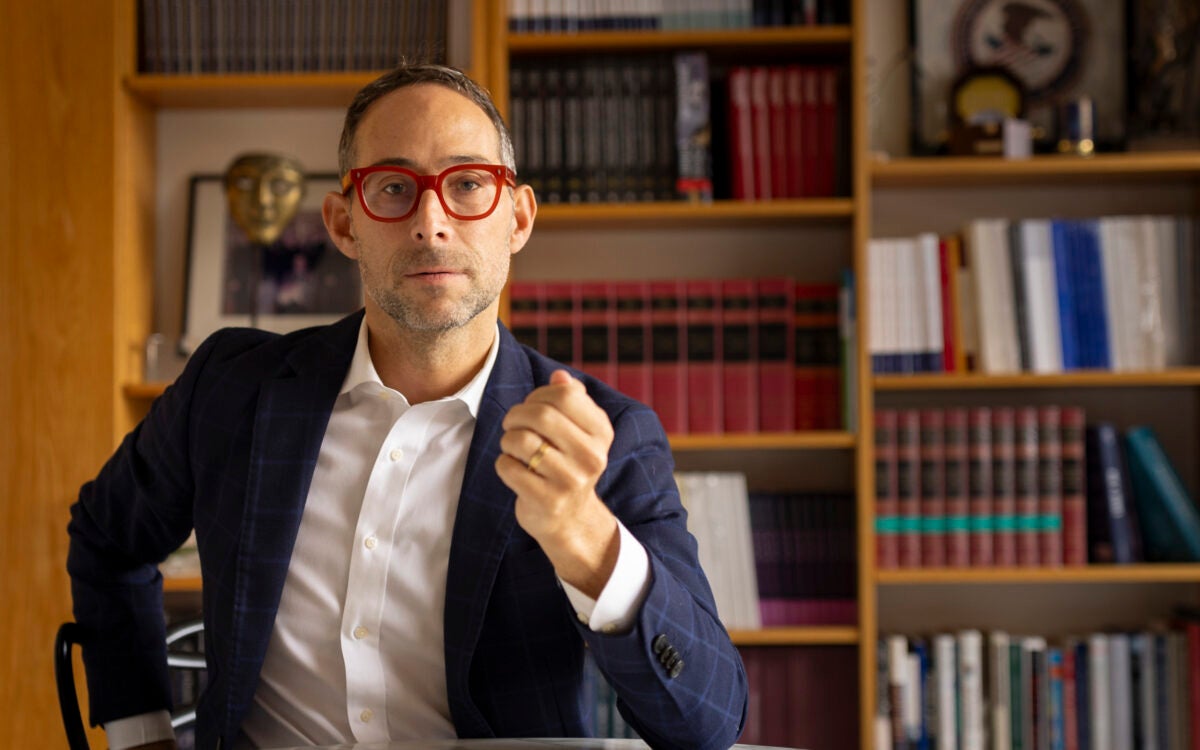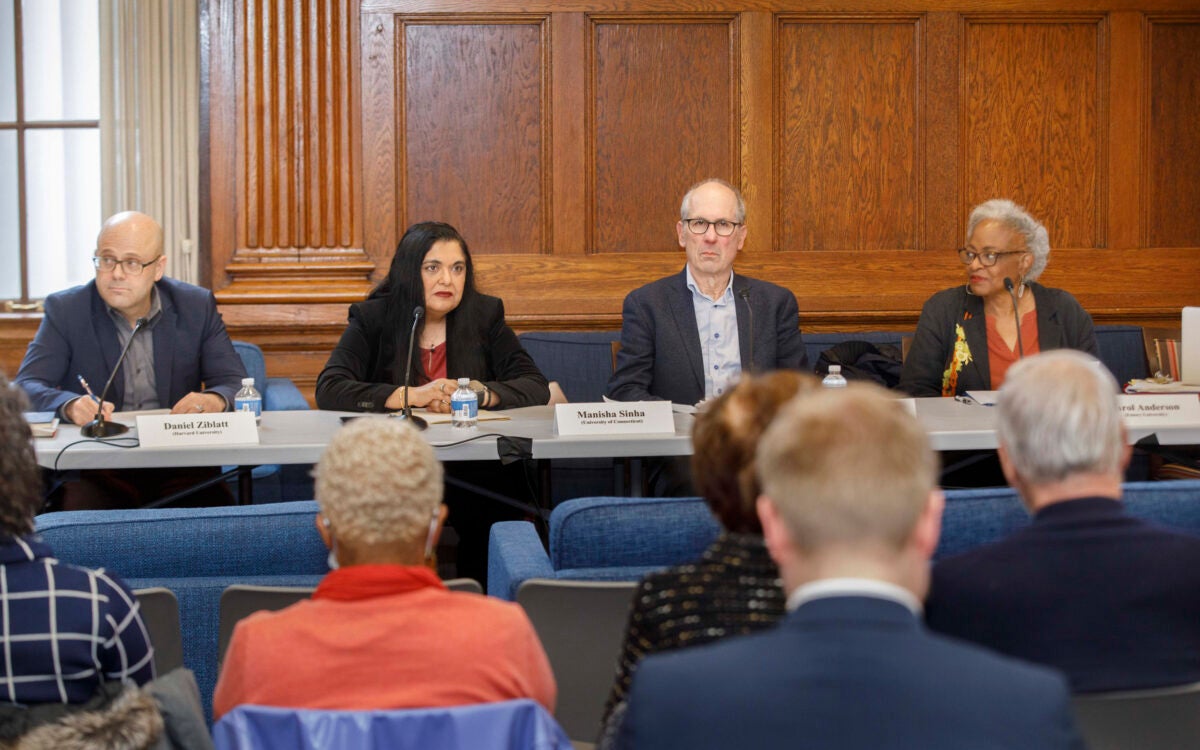Forum panelists dissect ‘America’s leadership deficit’
How to address “America’s leadership deficit” was the focus of discussion Wednesday night (March 21) at the John F. Kennedy Jr. Forum.
Describing the deficit as a “canyon, not a gap,” David Gergen, director of the Kennedy School’s Center for Public Leadership (CPL), argued that the challenges facing the country are growing more complex and intractable at a time when its political leaders seem paralyzed and inert.
“It has been my judgment that the leadership class in this country in public life – both Republican and Democratic – is failing … and I think the country is facing a much more difficult landscape because of that,” he said. “We see all sorts of problems accumulating for the next president that are going to be overwhelming.”
Rosabeth Moss Kanter, Ernest L. Arbuckle Professor of Business Administration at Harvard Business School (HBS), argued that leadership in the public sector has been undermined in recent years by a growing anti-government sentiment.
“There hasn’t been sufficient value to serving the public interest,” she said. “Where has been the sense of commons in recent years, of needing to work for things greater than one’s own interest? If institutions don’t operate on a sense of value, then people of character find other ways to make contributions.”
Kanter pointed to social entrepreneurs as the new and upcoming class of leaders in America, saying that their example should raise expectations about the future.
“If we begin to demand of people that they operate out of the best of themselves and not the worst of themselves, we could find that the leadership deficit goes away,” she said. “I think it’s reshaping what we expect from those who lead our organizations and the values that we want them to bring to that quest.”
The nation is operating on a “20th century definition of leadership in the 21st century,” contended Bill George, professor of management practice at HBS and author of “True North: Discover Your Authentic Leadership.”
“People in this country are not going to follow the great leader over the hill. We still have this World War II image of leadership. It’s not about that. Leadership is not about getting people to follow you. It’s how do you empower people to step up and lead on all levels?” George said.
And George admitted that a new model of leadership is beginning to emerge in the business world, one characterized by “a shared mission and purpose, and a shared sense of values by which we all come together.”
Gergen said he feels optimistic about the new generation of leaders rising up through both the public and private sectors. “It’s a different voice, and it’s a giving voice, and I think it’s a hope right now,” he said.
Wednesday’s forum was co-sponsored by CPL and the Institute of Politics.




